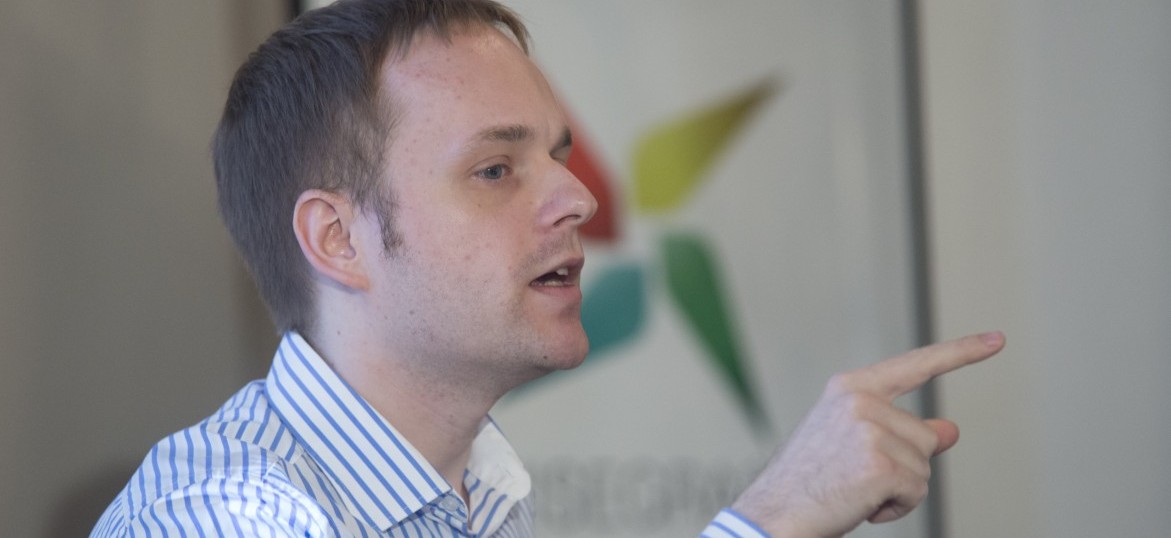
The fourth day of this year Visegrad Summer School was devoted to very concrete topics. After the theoretical considerations of the previous days – now the participants were invited to ponder upon the practical application of the ideas.
The first lecture of the day concerned the possibilities offered by the International Visegrad Fund. Karla Wursterová, the Executive Director of the institution gave a detailed in-depth presentation that inspired many questions. The IVF provides many opportunities to anyone who wants to turn ideas and dreams into reality. Even though for the time being only up to 20% of applications are accepted, the IVF is quickly developing and involves external donors, such as for example the Netherlands who contributed to the recent V4 Eastern Partnership programme. As she pointed out, the IVF is open for suggestions and opinions of its beneficiaries. One of the results of those constant consultations is the coming Fund’s reform that aims at facilitating the accessibility of the grants.
Later on, Jakub Kulhánek gave a thoroughly brilliant lecture on the Eastern Partnership. Even though, as he mentioned the topic is very technical and not that exciting at all – it initiated a lively debate. As Irakli Samkharadze from Georgia told me that was one of the best lectures of the Visegrad Summer School so far. Other participants coming from the Eastern Partnership states shared his opinion. Eventually, after the long disputes on the Central European identity, etc. – a topic that concerns them was included. Actually, many problems and controversies emerged during the debate. It shall not come as a surprise. The EaP is fundamental either for the nations included into the project and for the Central and Eastern European states that already joined the EU.
There are numerous problem. First of all, as we all can see – or actually cannot see any visible effects of the EaP such as visa free transport for instance. Even though Moldova is about to accomplish the procedure soon – still there’s a growing frustration among our societies that EaP is just an excuse or an alternative to full membership. Nevertheless, the EaP is not about some spectacular breakthroughs but everyday efforts. There’s a substantial progress in the negotiations of the Deep and Comprehend Free Trade Area or Association Agreements with some of the countries. A solid institutional platform has been established as well. Besides the high profile meetings, summits and Euronest parliamentary assembly – there’s also the Conference of the Regional and Local Authorities for the EaP or finally the Civil Society Forum that forms a platform for societies’ cooperation.
Sadly, it seems there’s still much to do in many field. As Irakli Samkharadze pointed out – in Georgia everyone know that the EaP is something beneficial but very few people are aware of what is it exactly. Olha Luchka from Ukraine admitted that it’s not that easy to see any “real results” of the EU policy in her country. One of the problems might be an effect of the own internal predicaments of the EaP states. The main rule governing any EU’s external actions is the promotion of the EU’s principles such as the rule of law or democracy. There’s a clear proportion between the EU’s engagement and partners’ progress in political modernisation. Hence, while e.g. Belarus remains ruled by the authoritarian regime the EU’s rather unwilling to cooperate. On the other hand, even though Azerbaijan is not a champion of liberties as well – the EU’s so called “critical engagement” is usually subject to the Caucasus state’s rich natural resources. That’s a real problem. To Lilit Gasparyan from Armenia it’s obvious that the EU should be more critical – even towards her own country. In her view there could be no fair trade with an unfair and undemocratic state. She considers the political modernisation as a necessary condition for a good economic record.
As always in the area there’s one external problem, too. That is Russia. It’s obvious that Colonel Putin’s government wants to secure its sphere of influence in the region offering alternative projects such as the Custom Union or the Euroasian Union. As Anastasja Panasevic from Lithuania highlighted this also plays some role in the Western European states’ involvement in the EaP. As she pointed out - Germany or France would rather prefer to secure good relations with Russia than annoy it with some serious initiatives in the region. This concerns the Central and Eastern European countries as well. Most of them is dependant to Russia’s gas and oil supplies’. Nevertheless, the energy security is going to be topic of the lecture of the next day of the 12. Visegrad Summer School.
Ziemowit Jóźwik













